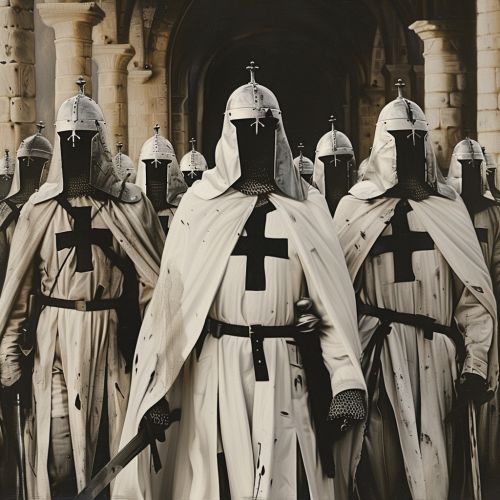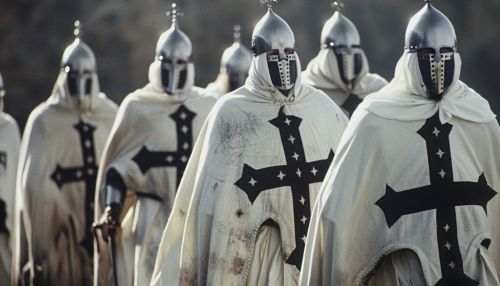Teutonic Knights
Origins and Early History
The Teutonic Knights, officially known as the Order of Brothers of the German House of Saint Mary in Jerusalem, was a medieval Catholic military order founded in the Holy Land during the late 12th century. The order was initially established as a hospital brotherhood in Acre around 1190 during the Third Crusade. The brotherhood was transformed into a military order in 1198 and was recognized by Pope Innocent III in the same year.


The Teutonic Knights were known for their distinctive white mantles adorned with a black cross, and their primary mission was to provide care for Christians on their pilgrimages to the Holy Land. However, their role expanded to include military campaigns, particularly against Muslim-controlled territories in the Middle East and later against pagan groups in Eastern Europe.
Expansion into Eastern Europe
In the early 13th century, the Teutonic Knights began their expansion into Eastern Europe, primarily into the regions of Prussia and Livonia. This was largely due to an invitation from the Polish Duke Conrad of Mazovia, who sought the order's assistance in his conflicts with the Old Prussians - a pagan Baltic tribe. The Knights launched the Prussian Crusade, which resulted in the conversion of the Old Prussians to Christianity and the establishment of the Monastic State of the Teutonic Knights.
The order's expansion continued throughout the 13th and 14th centuries, with the Knights establishing control over territories in modern-day Poland, Lithuania, Latvia, and Estonia. The Teutonic Knights built numerous castles and fortresses, such as the Malbork Castle, which served as the order's headquarters and is today a UNESCO World Heritage Site.
Conflicts and Decline
The Teutonic Knights' expansion and conversion efforts were met with resistance, leading to several conflicts. The most significant of these was the Battle of Grunwald in 1410, where the combined forces of Poland and Lithuania defeated the Teutonic Knights. This marked a turning point in the order's history, leading to its decline in power and influence.
The Knights suffered further losses during the Thirteen Years' War against the Kingdom of Poland. The war ended with the Second Peace of Thorn in 1466, which resulted in the order's loss of substantial territories to Poland.
Modern Era and Legacy
In the modern era, the Teutonic Order has transformed into a purely religious Catholic order, with its members no longer taking part in military campaigns. The order continues to exist today, focusing on charitable and social work.
The legacy of the Teutonic Knights is evident in the regions they once controlled. Their influence can be seen in the architecture, culture, and history of these areas. The order's history has also been the subject of numerous works of literature and film, most notably in Henryk Sienkiewicz's novel "The Knights of the Cross" and the Polish film "Knights of the Teutonic Order".
